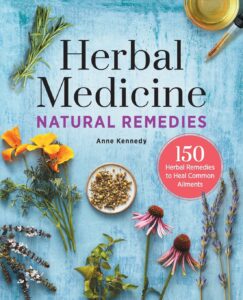Learn why natural home remedies may not suit everyone to alleviate common ailments like migraines, headaches or toothache. Learn the limitations.
Many people prefer natural home remedies over traditional medicine because they are often effective and have fewer side effects. However, if you are new to using natural remedies, you may be looking for some guidance.
Natural remedies which can range from herbal supplements to traditional practices like acupuncture, have long been a source of fascination and hope for those seeking alternative approaches to health and well-being.
These remedies, often derived from plants, herbs, minerals, or other natural sources, have gained popularity due to their perceived safety and the desire to avoid the potential side effects of pharmaceutical drugs. But, is this really true?
Note that not all natural remedies work for everyone, and their effectiveness can vary significantly from one individual to another.
This article delves into the multifaceted reasons behind the variability in the uses of natural home remedies and highlights the importance of informed decision-making when considering the uses of these natural remedies as part of a healthcare regimen.
Uses of Natural Home Remedies – 3 Reasons They May Not Work for You
Have you ever found that a popularly touted natural remedy did not work for you and wondered why? For example, while drinking grape juice directly from ripe grapes may alleviate headache or migraine pain for some, others may not find relief with this method.
Sometimes, it might be necessary to try out different remedies until you find the one that works best for you. But, the golden question is “can you afford to wait” to find a treatment?
Thankfully, there are many natural remedies available for various medical issues. For instance, if you suffer from a sore throat, you could try gargling with saltwater or honey and lemon.
For a cold or the flu, you could try sipping hot tea with ginger and honey. Additionally, natural remedies like lavender oil or chamomile tea can help with insomnia.
Factors That Influence Variability in the Use of Natural Remedies
Biological Factors
Genetics and Individual Differences
Genetic makeup plays a significant role in how our bodies respond to natural remedies. Some individuals may metabolize certain compounds differently, affecting the remedy’s effectiveness.
Allergies and sensitivities vary among people, which can lead to adverse reactions or a lack of response to specific natural remedies.
Health Conditions and Allergies
Underlying health conditions can influence how the body interacts with natural remedies. For example, someone with a compromised immune system may not respond as effectively to an immune-boosting herbal remedy.
Allergies to certain plants or substances used in natural remedies can cause adverse reactions or render these remedies ineffective for individuals with allergies.
Environmental Factors
The quality and source of the natural home remedies can vary widely. Factors like the purity of ingredients, the method of cultivation, and processing can impact its effectiveness.
Geographical location can influence the potency of plant-based remedies. Soil composition, climate, and altitude can affect the concentration of active compounds in herbs and plants.
Psychological Factors
Placebo Effect and Mindset
The power of the mind in healing should not be underestimated. The placebo effect can lead individuals to perceive benefits from natural remedies, even if the remedy itself lacks scientific support.
A person’s mindset, beliefs, and expectations can influence their response to natural remedies. Positive beliefs about a remedy can enhance its perceived effectiveness.
Stress and Mental Health
Stress, anxiety, and mental health conditions can impact how a person perceives the effects of natural remedies. Reducing stress and improving mental well-being can enhance the efficacy of these remedies.
The mind-body connection plays a critical role in the effectiveness of natural remedies. Factors like relaxation, meditation, and mindfulness can complement these remedies.
Examples of Variability in Uses of Natural Home Remedies
Herbal Remedies
Echinacea for Colds and Flu
Echinacea is a popular herbal remedy believed to boost the immune system and reduce the severity and duration of colds and flu.
Case studies and clinical trials have shown mixed results. Some individuals experience relief from symptoms, while others report no significant improvement.
Genetic factors may play a role in this variability, as some people possess specific genes associated with a better response to echinacea.
St. John’s Wort for Depression
St. John’s Wort is often used as a natural alternative to conventional antidepressants. While it has been effective for some individuals with mild to moderate depression, it does not work for everyone.
Variability in response may be influenced by the severity of the depression, individual brain chemistry, and the presence of coexisting conditions.
Dietary Supplements
Fish Oil for Heart Health
Fish oil, rich in omega-3 fatty acids, is believed to support heart health by reducing the risk of heart disease. Some studies have shown positive effects on heart health, while others have not demonstrated a significant benefit.
Factors such as genetics, diet, and the presence of other risk factors can influence the response to fish oil supplements.
Probiotics for Gut Health
Probiotics are widely used to promote a healthy gut microbiome and improve digestion. The existing gut microbiome, diet, and lifestyle choices can all affect the response to probiotics.
Results vary among individuals, with some experiencing improvements in gut health, while others report no noticeable changes.
Homeopathic Remedies
Arnica for Pain Relief – Uses of Natural Home Remedies
Arnica, a homeopathic remedy, is used topically for pain relief, bruising, and inflammation.
Responses to arnica are inconsistent, with some individuals finding it effective for pain management, while others do not experience the same benefits.
Factors like individual pain thresholds and the nature of the injury may impact its effectiveness.
Oscillococcinum for Flu Symptoms
Oscillococcinum is a homeopathic remedy marketed for the treatment of flu-like symptoms. Scientific evidence supporting its efficacy is limited, and many users report mixed results.
Belief in the remedy and psychological factors may play a significant role in individual experiences with this product. It is therefore necessary to approach natural remedies with an open but critical mindset.
Understand that what works for one person may not work the same way for another.
This is why consulting with healthcare professionals is recommended as this can help with making informed decisions about incorporating natural remedies into healthcare routines.
Choice of Remedies
Always remember that natural home remedies are not a substitute for professional medical care. If your condition is severe or does not improve with home remedies, seek medical attention immediately. Always consult with your doctor before trying a new remedy, especially if you have a pre-existing medical condition or take medication.
When choosing a natural home remedy, consider the convenience and availability of the ingredients. For example, if you have a bag of potatoes in your pantry, slicing up a potato and rubbing it on your wart each night for a few weeks may help remove it. Choosing a remedy that involves items you already have at home can save you time and money.
Natural home remedies can be an effective and convenient way to alleviate minor medical issues. However, it is essential to try different ones until you find the one that works best for you.
Safety Considerations
When using natural home remedies to treat minor medical issues, always prioritize safety. If you are taking prescribed medication, or have a pre-existing condition, check with your doctor or pharmacist before using herbal remedies or vitamins.
While the risk of a dangerous interaction is minimal, it is always better to err on the side of caution.
Also, pay attention to any allergies you have before using a natural remedy. If you are allergic to any of the ingredients listed in a remedy, avoid using it altogether, even if the ingredient is only a small component.
Fortunately, there are often multiple natural remedies available for treating the same issue, so you can choose one that works for you and doesn’t pose any risk of an allergic reaction.
Note that not all natural home remedies are safe or effective. Some herbs and supplements can interact with medications or cause adverse effects, so conduct some research and choose remedies from reliable sources.
Furthermore, never exceed the recommended dosage of a natural remedy, as this can be harmful.
By prioritizing safety and using these remedies wisely, you can certainly find relief from minor medical issues and support your overall health and wellness.
Uses of Natural Home Remedies by Seniors
Natural home remedies can be a safe and effective option for seniors to treat minor health issues, as long as they are used safely and with guidance from a healthcare professional. as they often have fewer side effects compared to prescription medications.
Note however that seniors may have unique health concerns, medical conditions, or be taking multiple medications, which can increase the risk of interactions or adverse effects.
Some of these natural home remedies may interact with medications or exacerbate existing health problems, so it is important to get professional advice before using them.
Seniors may also want to consider the form in which they ingest these remedies , as they may have difficulty swallowing pills or capsules. In these cases, herbal teas, tinctures, or topical applications may be more suitable.
Always follow recommended dosages and avoid using multiple remedies at the same time.
Certain natural home remedies may be especially helpful for seniors. For example, ginger can help alleviate nausea and joint pain, while turmeric has anti-inflammatory properties and may help lower the risk of cognitive decline.
In addition, some natural remedies such as chamomile tea or valerian root can improve sleep quality and reduce anxiety, .
Conclusion – Uses of Natural Home Remedies
Natural home remedies can be a valuable and effective option for treating minor health issues, as they offer a diverse and often holistic approach to health and wellness. Use them safely and with caution, because their effectiveness is far from consistent.
Recognizing and embracing the idea that health is an individual experience is important. What works for one person may not work for another due to a complex interplay of biological, environmental, and psychological factors. This highlights the need for a personal and tailored approach through consultation with a healthcare professional.
While natural remedies may offer relief with fewer side effects, they are not a replacement for medical treatment when needed. By combining natural remedies with a healthy lifestyle, regular exercise, and medical care, you can support our overall health and wellness.
Related Articles
- What Are Good Herbal Remedies for Inflammation? – Herbal Teas
- Natural Ways to Reduce inflammation in the Body
- What are Natural Remedies? – 10 Common Groups
- How to Use The Power of 5 Herbal Teas for Arthritis Relief
- Natural Herbal Remedies Use – 16 Pros and Cons
References
Complementary, Alternative, or Integrative Health: What’s In a Name? National Center for Complementary and Integrative Health, U.S. Department of Health and Human Services, 11 May 2016, https://www.nccih.nih.gov/health/complementary-alternative-or-integrative-health-whats-in-a-name.
Herbal Supplements and Medicines.” National Institute on Aging, U.S. Department of Health and Human Services, 28 May 2021, https://www.nia.nih.gov/health/herbal-supplements.
Johnson, Rebecca L., et al. “Use of Complementary Health Approaches Among Diverse Primary Care Patients Aged 65 or Older: Results from the PRIMES Study. Journal of the American Board of Family Medicine, vol. 33, no. 1, Jan-Feb 2020, pp. 41-51, doi: 10.3122/jabfm.2020.01.190150.







